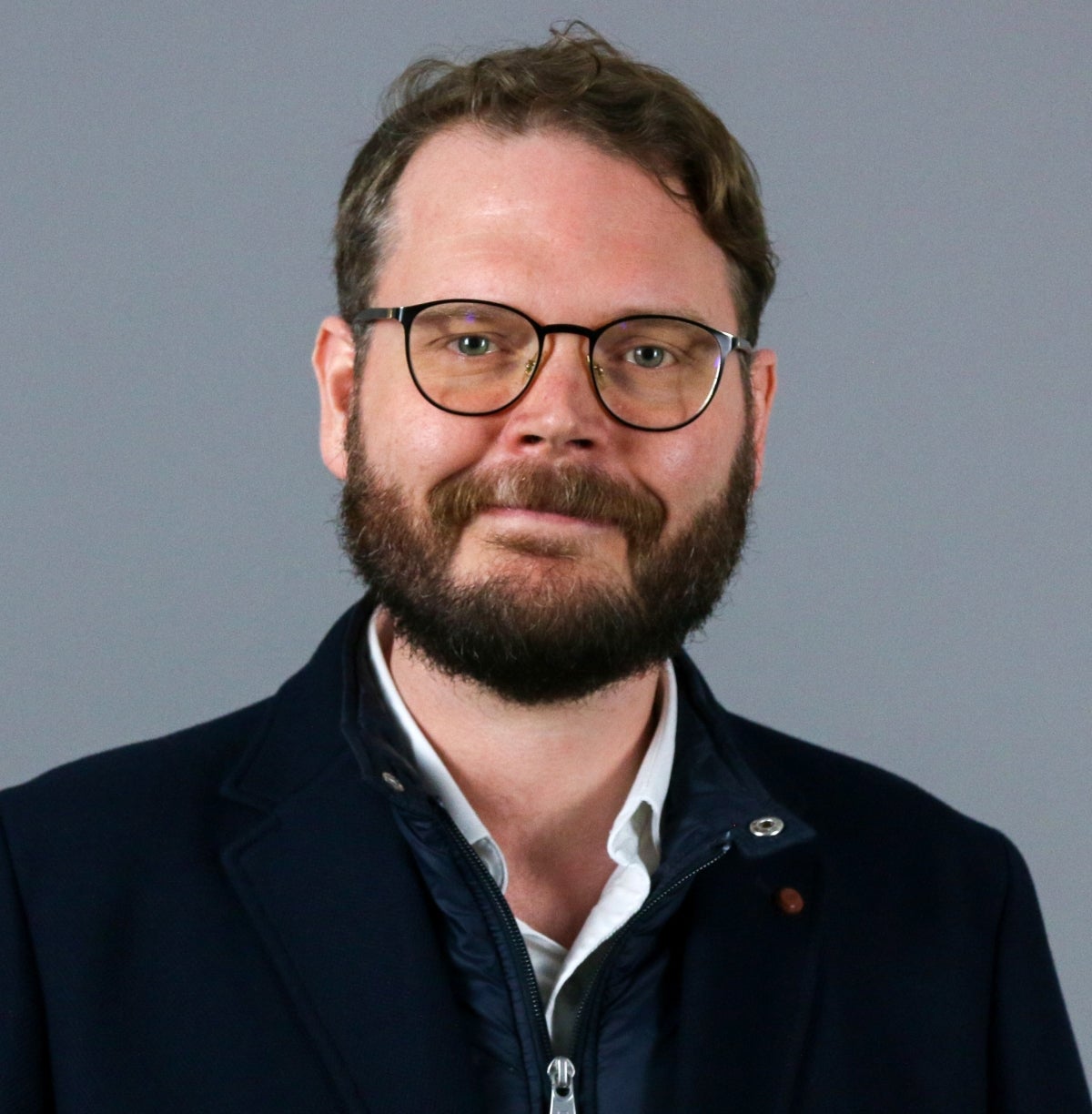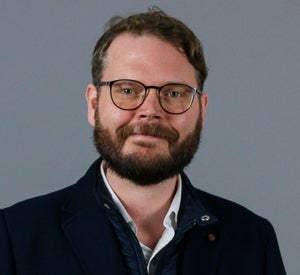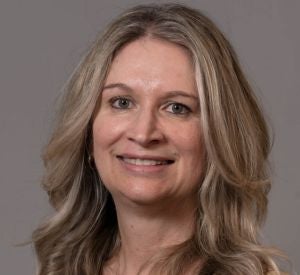The announcement of actor Bruce Willis’ aphasia diagnosis is raising awareness of a common condition that few people recognize. More than two million Americans are living with aphasia.
“It’s a really common disorder with limited services,” says Will Evans, an assistant professor in the Department of Communication Science and Disorders at the University of Pittsburgh School of Health and Rehabilitation Sciences (SHRS). “Most people don’t get treatment after the first year or so.”
Watch the video below to hear Evans talk to local CBS affiliate about aphasia.
For over a decade, Evans has been studying the language disorder and investigating methods to help people with aphasia improve their communication abilities. Aphasia, commonly caused by stroke or other acquired brain injuries, can have a negative effect on an individual’s quality of life, often leading to depression and feelings of isolation. A primary frustration for people with aphasia is anomia, or word-finding difficulty.
In February, Evans received a five-year, $2.98 million National Institute of Health R01 clinical trial grant to improve aphasia treatment. Through the study, titled “Integrating complementary learning principles in aphasia rehabilitation via adaptive modeling,” Evans and his team will develop and evaluate novel adaptive computer-based aphasia treatments to help improve the efficiency and long-term impact of language treatment.
One of the hallmarks of aphasia is its variability. “Two patients’ strokes that look almost identical on a brain scan can end up with totally different language difficulties,” explains Evans. “Aphasia therefore requires a precision medicine approach, figuring out the best way to meet individual patient needs.” Previous research has approached this by looking at how individual patient characteristics (like language ability or the nature of the brain damage) affect treatment outcomes. However, these studies usually apply to the same treatment delivered the same way to all patients. “We’re taking a different approach. Our adaptive computer-based treatments are designed to optimize each patient’s learning efficiency by using their own treatment performance over time to automatically adjust how long or how often they get to practice words.”
In other words, current approaches to precision medicine in aphasia have been focused on questions like “does a given patient characteristic make someone a good treatment candidate for a given one-size-fits-all treatment?” Instead Evans’ team is asking, “can we use adaptive learning algorithms to make computer-based treatments that are effective for as many different patients as possible by adapting to their own learning performance?”
His team includes fellow SHRS colleague and professor, Lauren Terhorst, Department of Occupational Therapy; Peter Brusilovsky, professor, School of Computing and Information; Jeff Starns, associate professor, Department of Psychological and Brain Sciences, University of Massachusetts Amherst; and Will Hula, speech-language pathologist, Veterans Health Foundation.
The investigators are excited about the potential outcomes of the study and their real-world implications.
“One of the clinical trials in this project uses free open-source flashcard software (Anki) to provide aphasia treatment. That means if the results of the trial are positive, patients and clinicians could immediately start using existing free software as an evidence-based treatment approach.
Evans’ previous work using technology to support treatment is already showing promise in helping those with aphasia. Currently, he is testing three prototypes through his “Aphasia Games for Health”—therapeutic games designed to help teach and connect others with aphasia in a fun and friendly way. Given common barriers to transportation and mobility experienced by stroke survivors with aphasia, these card games are designed to be playable in person, or through video conferencing software like Zoom.
One is an improv game where players pretend to audition for a movie and have to remember certain words but can get help from other players if necessary. When his team created the game, Evans could not have known that a major actor would be diagnosed with aphasia, but he does want the public to know that resources are available right now for people with aphasia.
“I have learned from my friends and former patients from the aphasia community that life continues. When they find support, when they figure out how to accept and respond to what has happened to them, there is a beautiful life that can follow with people supporting one another and fighting isolation,” says Evans.
Resources for People with Aphasia
- The National Aphasia Association: aphasia.org
- Aphasia Recovery Connection, an online aphasia support community with over 17,000 members: facebook.com/aphasiaARC
- An easy place to find research studies to enroll in, created by Pitt CSD PhD student Rob Cavanaugh: aphasiaresearch.org.
- Pitt is also sponsoring a new free local monthly aphasia support group at the SHRS Wellness Pavilion. Those interested should email Chrisa Kravetz at aphasia.group.pgh@gmail.com.



